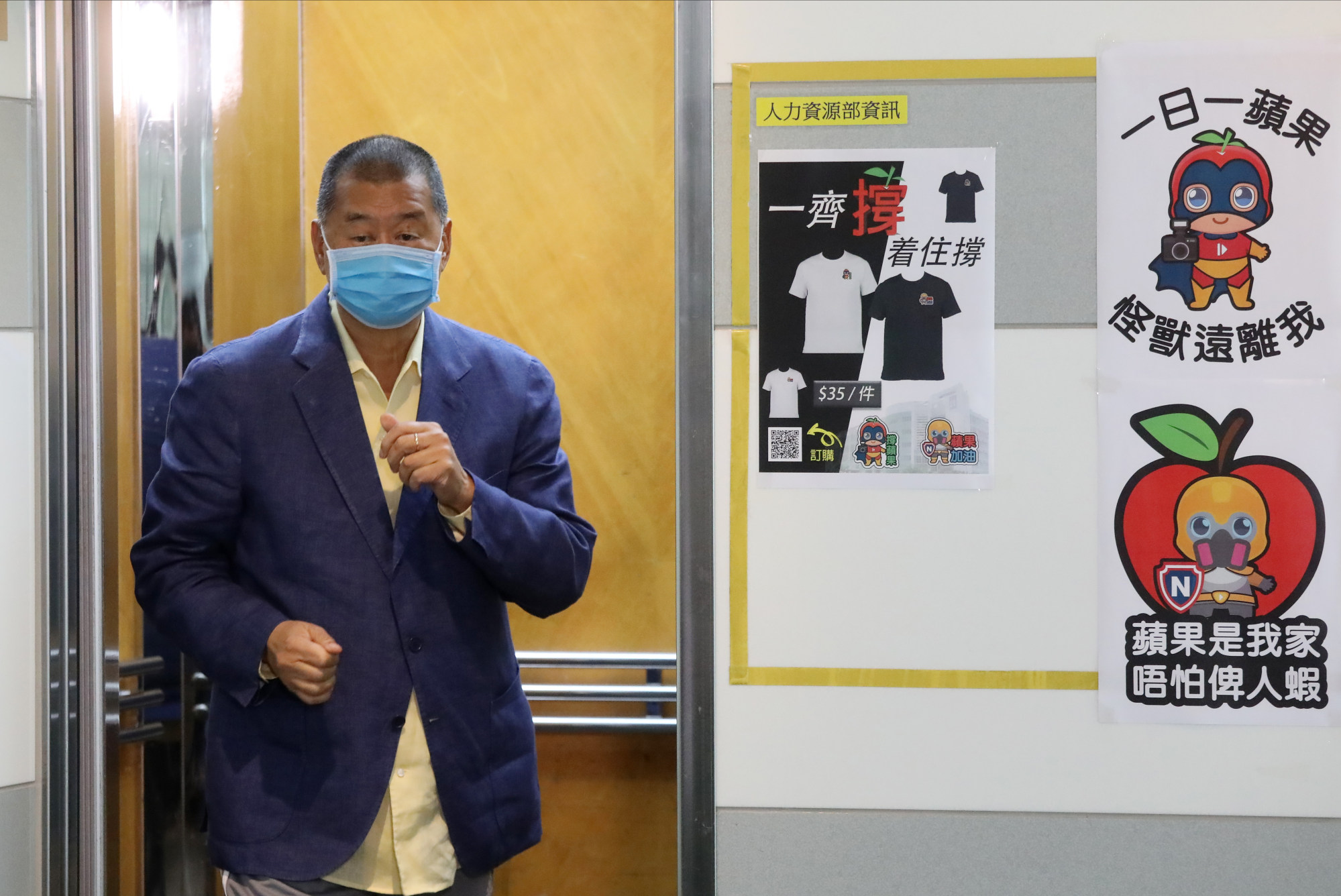
Hong Kong’s Apple Daily did not have full editorial independence as senior staff had ‘no choice’ but to follow Jimmy Lai’s orders, court hears
- Even highest-ranked editors could not deviate from directions from boss Jimmy Lai, ex-publisher Cheung Kim-hung says during cross-examination
- Defence downplays tycoon’s influence at now-closed Apple Daily tabloid, insisting senior staff had their own input and strayed from his suggestions
Ex-publisher and defendant turned prosecution witness Cheung Kim-hung said editorial independence was merely an ideal for the newsroom as even the highest-ranked editors could not deviate from the directions of the 76-year-old media boss.
“So my role was to supervise [the senior management] to ensure they followed Mr Lai’s editorial policies,” Cheung said during cross-examination by the defence as the national security trial entered its 18th day.
“We indeed had a wish for editorial independence, but in terms of Mr Lai’s editorial policies and requests for us, we had no choice.”
Hong Kong’s Jimmy Lai told Apple Daily not to target Donald Trump, court hears
Lai has pleaded not guilty to two conspiracy charges of collusion with foreign forces under the Beijing-decreed national security law, as well as a third count of conspiracy to print and distribute seditious publication under colonial-era legislation.
Prosecutors spent seven days examining Cheung’s evidence in support of their case that Lai orchestrated an anti-China campaign using Apple Daily, over which the tycoon was said to have complete editorial policy control.
Lai’s legal team on Monday downplayed Lai’s role in various advertising and publication strategies, arguing that Cheung and other senior executives had their own input.
Defence Senior Counsel Robert Pang Yiu-hung pointed to one occasion where the tycoon expressed doubts about Cheung’s idea to seek the assistance of opposition district councillors in asking readers to subscribe to Apple Daily.

“Let them do it spontaneously. Would it be embarrassing for us to launch such an initiative? After all, we are a profit-making organisation. I may be too sensitive [as Apple Daily’s owner],” Lai said in a text message to the ex-publisher.
The court heard Cheung put the proposal into action anyway, with a poster submitted to the court suggesting former Sha Tin district council member Billy Chan Shiu-yeung had arranged question and answer sessions to help tackle difficulties faced in signing up to Apple Daily’s paid services.
“Such conduct by CY Leung is nothing new. It has been like this all these years, lashing out at advertisers to pressure Apple Daily so that advertisers will pull out. A fact indeed,” Cheung wrote, adding the tabloid would “definitely not compromise” and continue to safeguard free speech and other core values of the city.
The Jimmy Lai trial so far: daily updates on his Hong Kong national security case
Pang said there were occasions when Cheung would implement Lai’s suggestions after the latter expressed his “thoughts” to him.
The counsel also highlighted the differing views conveyed in a WhatsApp group discussion among senior executives about the inclusion of Apple Daily’s logo on a “pro-resistance” poster distributed by the Democratic Party.
“So that suggests Mr Lai’s instructions are not invariably followed,” Pang said. “The views of everyone were important, not just the views of Mr Lai.”
Cheung rejected that contention and maintained that what the tycoon said to him and his colleagues were more than mere “values”.
“[The instructions were] not just about freedom, democracy or free speech, but [they were] about where the entire newspaper was heading,” the witness said.
Cheung also pushed back at the defence’s argument that Lai’s input before 2019 was limited to commercial decisions, adding the tycoon’s “mission” had always been to secure universal suffrage for Hong Kong.
Hong Kong court rejects bid by Jimmy Lai to block witness’ ‘irrelevant’ evidence
Pang turned to Apple Daily’s weekly “lunchbox meetings” and submitted they were held to discuss “general business concerns” rather than for Lai to lay out his editorial instructions as the witness earlier claimed.
Cheung countered by referring to minutes he made after a January 2020 meeting, saying Lai specifically instructed Apple Daily to interview those arrested during the previous year’s social unrest due to his sympathy for the protesters.
The ex-publisher recalled being asked by Lai to advertise the movement on high-rise buildings and organise art performances on large moving trucks. The court heard the tasks were later left to Lai’s personal assistant Mark Simon, a former United States intelligence agent.
The trial continues on Tuesday.
